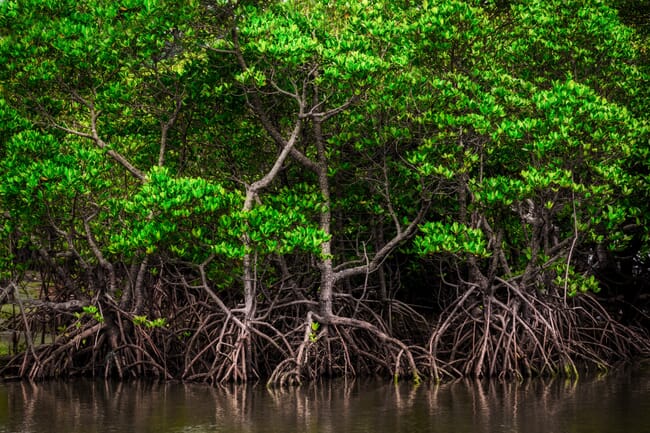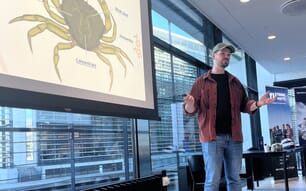
Called AQUAM, it was launched last week by the Mekong Delta province's Department of Agriculture and Rural Development, Australia’s University of Queensland and GreenField Consulting and Development Ltd (GFD).
The AU $500,600 (US $384,948) project aims to build an environmental monitoring system for mangrove aquaculture to improve the management of mangrove forests and the resilience of coastal communities in the face of climate change.
Advantages of mangrove aquaculture
Mangrove aquaculture systems provide multiple products and ecosystem services, such as support of fisheries, biodiversity, carbon sequestration, coastal protection and resilience to climate change. They are, however, heavily dependent on the influx of high quality natural tidal water. If tidal water is polluted, low in oxygen, infected or affected by salinity changes, due to heavy rains or drought, then this poses risks to both aquatic species and mangrove trees.
Therefore, monitoring of water quality is critical to support farmers' decision making on what species to culture and when to exchange water within aquaculture ponds. This is especially important in the Mekong Delta, where water pollution due to upstream agricultural production, intensive aquaculture, industrial production and domestic waste is becoming more severe.
The project will be carried out over the next 15 months in key mangrove aquaculture areas in Ca Mau, with a budget totalling over AU $500,600 (US $384,948), funded by the Australian Innovation Fund (Aus4Innovation).
Key activities include:
- The design, production, installation and operation of 15 wireless aquatic environmental monitoring stations (AQUAM stations) at key water points for mangrove-aquaculture.
- Upgrading and tailoring automated mangrove change detection for Ca Mau province using Sentinel 1 and 2 images using the Google Earth Engine, Google Deep learning TensorFlow and low cost Google cloud platform.
- Upgrading the Geosurvey software as new app, AQUAM software, for reporting changes in mangroves and water environment and which allows farmers and technicians to report environmental hazards and fluctuations in real-time.
- Integrating and processing all monitoring information, including automatic satellite image interpretation into the AQUAM app system, and the production of intuitive and easy-to-use environmental reports for all stakeholders.
Vice-director of the provincial Department of Agriculture and Rural Development, Chau Cong Bang, was reported by Viet Nam News as having said that the project "is a timely and valuable response to the province's needs in developing ecological shrimp and crab farming in mangrove forests in association with protecting the ecological environment for mangrove aquaculture areas".




